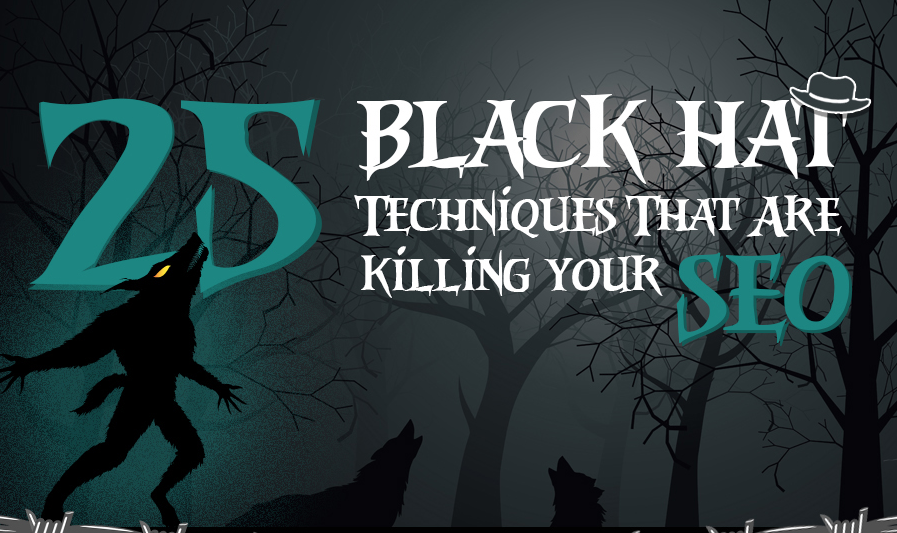introduction:
Here are common black hat seo explained in simple English, step by step with headings
Black hat techniques refer to unethical or manipulative strategies used to exploit systems, often in SEO (Search Engine Optimization) and cybersecurity. These techniques are used to achieve fast results by violating guidelines or exploiting vulnerabilities, but they risk penalties, bans, or legal consequences. Below are some common black hat techniques:
1. Keyword Stuffing of black hat
– Stuffing keywords into website content to manipulate search engines
– Using keywords repeatedly, even if it doesn’t make sense
The content often becomes unreadable, reducing user experience. Search engines like Google penalize websites that use this tactic. Keywords might be hidden in paragraphs, titles, or meta tags. This tactic is outdated and harmful to long-term SEO success.
2. Cloaking
– Hiding content from search engines, showing different content to users
– Deceiving search engines to rank higher
Cloaking involves showing different content to search engines than what users see. It’s used to deceive search engines into ranking a page for irrelevant or unrelated keywords. This method violates search engine guidelines and often leads to heavy penalties. Cloaked pages typically aim to rank highly in search results while misleading users. Search engines like Google are adept at detecting cloaking.
3. Link Farming
– Creating fake websites to link to your main website
– Manipulating search engines to think your website is popular
Hidden text refers to embedding keywords on a page in a way that’s invisible to users but visible to search engines. This is typically done by matching the text color to the background or by hiding it in the page’s code. The goal is to increase keyword density without disrupting the user experience. However, search engines have advanced algorithms to detect and penalize this. It offers no real value to users.
4. Doorway Pages
– Creating fake pages to redirect users to your main website
– Deceiving search engines to rank higher
Doorway pages are created solely to rank for specific keywords and then redirect users to another site or page. These pages offer little to no value and exist just to capture search engine traffic. They are often filled with low-quality content or irrelevant information. Search engines frown upon this technique because it manipulates search rankings and misleads users. Doorway pages may lead to site penalties or deindexin in backhat seo.
5. Article spinning
– Rewriting articles to create fake unique content
– Manipulating search engines to think you have more content
A link farm is a group of websites that link to each other excessively in order to artificially inflate their search engine rankings. These websites usually contain low-quality or irrelevant content. Link farming can lead to temporary ranking improvements but is quickly identified by search engines. Being associated with a link farm can result in penalties, including complete removal from search engine indexes. It does not provide real value to users or search engines.
6. Comment Spamming
– Leaving fake comments on websites to link to your website
– Manipulating search engines to think your website is popular
7. Hidden Text
– Hiding text on your website to manipulate search engines
– Using CSS or HTML to hide text from users
8. Article Spinning
Article spinning is a tactic where existing articles are rewritten by automated tools to create “new” content. The rewritten versions often suffer from poor grammar and readability issues. This technique aims to avoid duplicate content penalties while still leveraging existing content for SEO purposes. However, search engines have grown sophisticated in detecting spun content. It doesn’t offer a positive experience for readers.
9. Duplicate Content
Duplicate content occurs when the same or very similar content appears on multiple pages of a website or across different domains. This confuses search engines and reduces the overall value of the content. Duplicate content can lead to a drop in rankings since search engines prefer unique content. It can also dilute traffic if the same content ranks in multiple places. Search engines may apply penalties if duplication is widespread.
10. Spammy Comments of black hat
Posting irrelevant or low-quality comments on blogs, forums, and other user-generated content platforms with the intent to gain backlinks is considered spammy. These comments typically contain unrelated links and add no value to the discussion. They are easily identified by both users and site administrators, who often delete or block such comments. Many sites use no-follow tags on comments to prevent spam links from affecting SEO. Search engines may penalize sites engaging in this practice.
11. Private Blog Networks (PBNs)
PBNs are networks of websites created specifically for link building to manipulate search engine rankings. These sites often have minimal or low-quality content and exist only to provide backlinks to other websites. While they may offer short-term ranking boosts, search engines actively penalize sites associated with PBNs. Managing a PBN is costly and risky due to the potential penalties. Legitimate link-building is always more sustainable.
12. 301 Redirects to Manipulate Rankings
Some websites misuse 301 redirects by pointing them from high-authority pages to unrelated low-quality pages to manipulate rankings. The idea is to pass link equity from one page to another. Search engines can detect when 301 redirects are used in a manipulative manner and penalize websites accordingly. Misusing redirects can harm a site’s trustworthiness. Properly used, 301 redirects should only transfer legitimate value between relevant pages.
13. Clickbait Headlines
Clickbait headlines are sensational or misleading titles designed to attract clicks, often leading to low-quality or irrelevant content. They typically promise more than they deliver, disappointing users who expect the content to match the headline. Over time, using clickbait can damage a website’s reputation and reduce user trust. Search engines might also penalize sites with a high bounce rate due to misleading headlines. Quality content with appropriate titles is a more effective strategy.
14. Negative SEO
Negative SEO involves using black hat techniques to sabotage a competitor’s rankings. This may include building spammy backlinks to the competitor’s site, scraping their content, or hacking their site to manipulate their SEO. Negative SEO is unethical and can cause significant harm to a business. While search engines have defenses in place, some attacks can still slip through. Ethical SEO practices focus on improving your own rankings, not attacking others.
15. Typosquatting
Typosquatting involves registering domains with common misspellings of popular websites, intending to steal traffic from those legitimate sites. Visitors who accidentally mistype the original domain may land on the typosquatted site, which is often filled with ads or malicious content. Typosquatting is illegal and unethical, and search engines penalize these domains when identified. Brands can take legal action to reclaim their misspelled domain variations.
16. Over-optimized Anchor Text
Over-optimized anchor text occurs when backlinks excessively use exact-match keywords in the anchor text. This creates an unnatural backlink profile and raises red flags with search engines. The result is often a manual or algorithmic penalty. Search engines favor natural and varied anchor text. Overuse of keyword-rich anchors can diminish the credibility of your backlink profile. A balanced and diverse anchor text strategy is more sustainable.
17. Bait-and-Switch in black hat
Bait-and-switch tactics involve creating a page optimized for specific keywords, then swapping the content after ranking is achieved. Users and search engines initially see one type of content, but once the site ranks, it changes to something completely different. This misleads both search engines and users. Such tactics can lead to penalties from search engines, as they violate the guidelines of providing relevant, valuable content. It can also hurt user trust.
18. Automated Queries
Automated tools are sometimes used to generate search queries at scale to manipulate search impressions and click-through rates. This technique attempts to influence search engines into thinking a page is more popular or relevant than it actually is. Search engines, especially Google, penalize sites for using automated query software. It is an unethical approach that offers no long-term benefit. Genuine search traffic is always more valuable and trustworthy.
19. Cookie Stuffing
Cookie stuffing involves placing affiliate tracking cookies on users’ browsers without their knowledge. When users make a purchase later, the site owner earns a commission, even if the user never clicked their affiliate link. This tactic is unethical and often illegal, as it involves deceiving both users and affiliate programs. Affiliate programs and search engines crack down on this practice, penalizing sites that engage in cookie stuffing. Trust-based affiliate marketing is more sustainable.
20. False Reviews
False reviews are fabricated reviews posted to boost a site’s reputation or damage a competitor’s standing. These reviews are often either overly positive or negative and are not reflective of actual customer experiences. Search engines and review platforms actively monitor and penalize businesses that generate fake reviews. Consumers also lose trust when they realize a business has falsified reviews. Honest feedback and reputation management are essential for long-term success.
21. Thin Content Pages
Thin content refers to pages that offer little to no value to the user, often containing just a few sentences or low-quality information. These pages are designed solely to rank for specific keywords without contributing meaningful or unique content. Search engines penalize thin content because it doesn’t serve users’ needs. Having well-researched, comprehensive content improves both user experience and SEO. Quality content always outranks quantity.
22. Link Injection
Link injection involves hacking websites to insert backlinks to another site in an attempt to boost rankings. These links are often hidden in the code or disguised to avoid detection. This illegal practice violates both SEO guidelines and cybersecurity laws. Sites that use injected links can face severe penalties, including being deindexed. Ethical link-building methods are much more effective and sustainable.
23. Hidden Links in blackhat
Hidden links are inserted into a webpage in such a way that they are invisible to users but readable by search engines. Often, these links are placed in the footer, sidebar, or hidden within the page’s HTML. Search engines detect these manipulative practices and penalize websites that employ them. Hidden links provide no value to users and can damage the site’s overall ranking. Transparency is key in ethical link-building strategies.
24. Content Automation
Content automation uses Remember, these techniques can harm your website’s credibility and ranking. Always use white hat SEO techniques to improve your website’s visibility.

